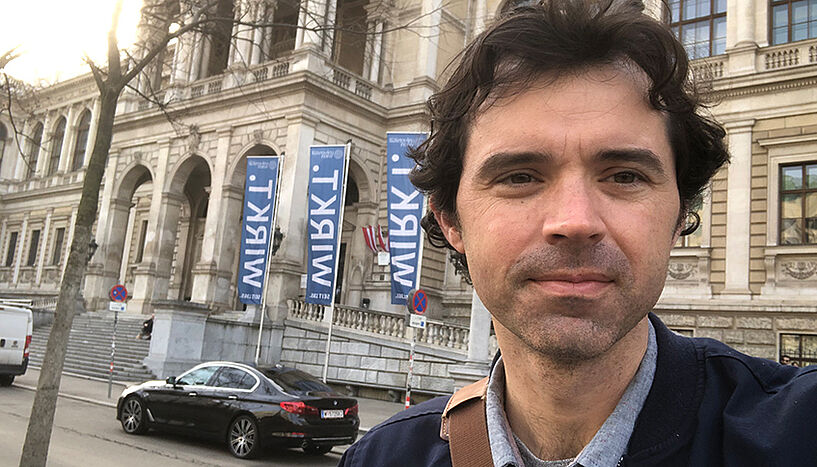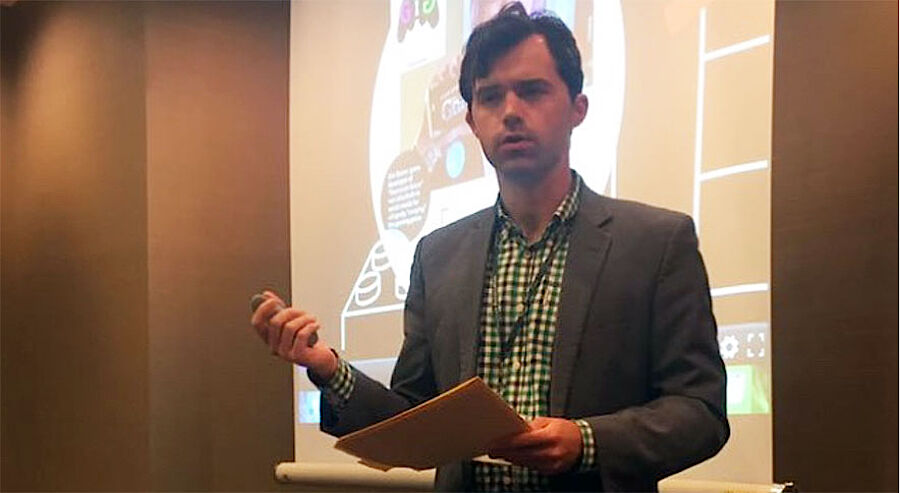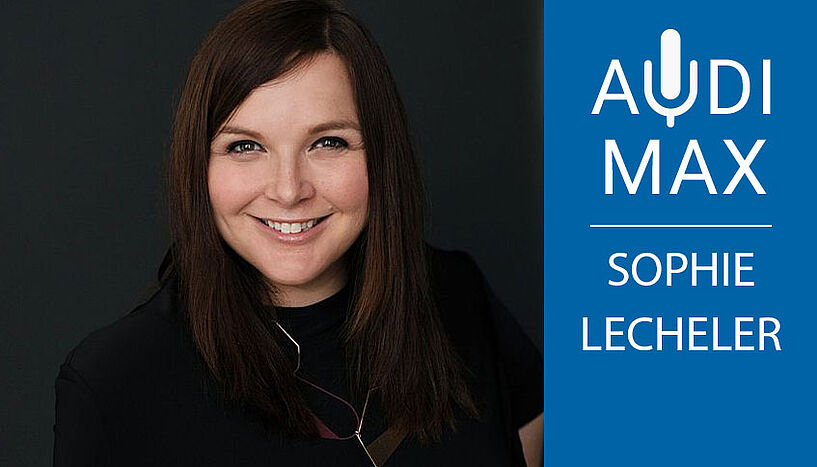Gregory Perreault: "Austria offers many opportunities"
| 26. April 2021
The teaching and research specialties of Gregory Perreault are Journalism and New Technology, Religion & Media, and Games Studies. (© Gregory Perreault)
The Department of Communication of the University of Vienna is happy to host Gregory Perreault of the Appalachian State University as Fulbright-Botstiber Visiting Professor. In the interview he talks about the study of digital journalism, especially the digitization among lifestyle journalists.
uni:view: Mr. Perreault, this summer semester you are Fulbright-Botstiber Visiting Professor at the Department of Communication. What are your intentions coming from the Appalachian State University, USA, to the University of Vienna?
Gregory Perreault: Austria offers many opportunities for the study of digital journalism given the vitality of the news environment, the consolidation of news organizations and the development of digital outlets — similar developments to those in America, which operates from a different cultural and political context. Digital news has progressed less quickly in Austria than in the US, resulting in a more vibrant newspaper culture.
The 2019 Reuters Digital News Report indicates that the Austrian government reviewed the media landscape in 2018 and is actively working to counter the effects of digital media on local news. Yet the report highlights that Austria's government has been on a collision course with independent journalism as it attempts to control the agenda and reform public service news media. By contrast, in the United States an increasing number of local communities have lost news coverage (1300 since 2004) and revenue for digital news is more elusive.
All of this together indicates that although many of the same circumstances have affected both Austrian and American news, the shape of the digital news environment is different in valuable ways, and that's what I'm here to study.

Gregory Perreault presenting research on the GamerGate controversy at the International Communication Association. (© privat)
uni:view: You research specialties are Journalism and New Technology, Religion & Media and Games Studies. How will you include them in your research/stay here in Vienna?
Perreault: Broadly, my research explores how journalists navigate issues of difference (e.g. religion, race, etc.) and that is something that is naturally affected by technology journalists implement, journalistic source selection and journalistic definition making. I see some real potential in the literature of game studies in terms of how it speaks to digitization. Digitization among lifestyle journalists is the main focus of my stay here and so it speaks squarely to the kinds of research I do and the kind of research done here at Vienna as well. Prior to leaving the United States, I collected about 30 long-form interviews with lifestyle journalists there – asking them about use of technology, how they perceive their field, and in particular their use of Instagram – and in the meantime my colleague here, Folker Hanusch, gathered about 30 here.
uni:view: You also analyzed the media coverage of the coronavirus pandemic in the US and will now compare it to data in Austria. Are there already any results from your study which you can share?
Perreault: Certainly, I'm currently analyzing the Austrian data so I can't really speak to that just yet. I did gather some data on American journalists in the pandemic that is in two papers. The first was recently published in an article in American Behavioral Scientist and the second is under review. In the first paper, American journalists argue that the coronavirus didn't necessarily introduce new problems so much as exacerbate existing problems: In particular, they felt that their ability to challenge misinformation and connect their audience with important resources was jeopardized by the pandemic – a frustrating finding given all that is at stake for us having the right information at this moment.
uni:view: It is not an easy time for travelling and getting to know cities. How do you experience Vienna currently?
Perreault: Honestly, the situation here is not all that different from the United States. Thankfully the things I love most about cities are the things that have not (so far!) been affected by the pandemic since I arrived: I can go hiking, running, and get a good coffee. I'd say my most overwhelming impression – having lived in several cities – is that the people here are incredibly warm and kind. It's a challenging and unusual time to travel, and a difficult time in the world more generally, so I've been thankful for the kindness of the people here.
uni:view: Thank you for the interview! (td)
Gregory Perreault is Assistant Professor at the Department of Communication, Appalachian State University, USA. His teaching and research specialties are Journalism and New Technology, Religion & Media, and Games Studies. During the summer term he is Fulbright-Botstiber Visiting Professor of Austrian-American Studies at the Department of Communication.



